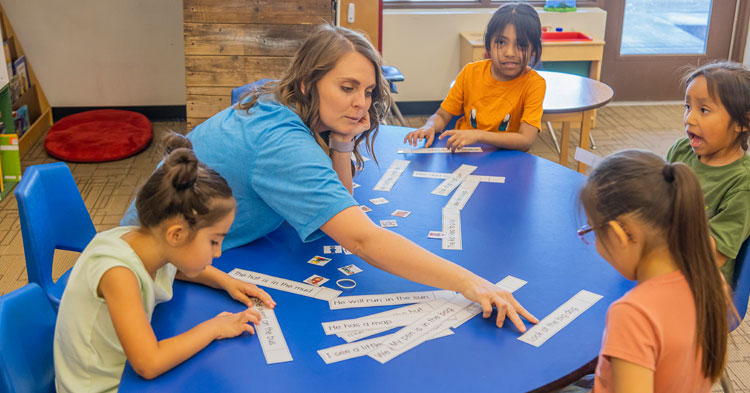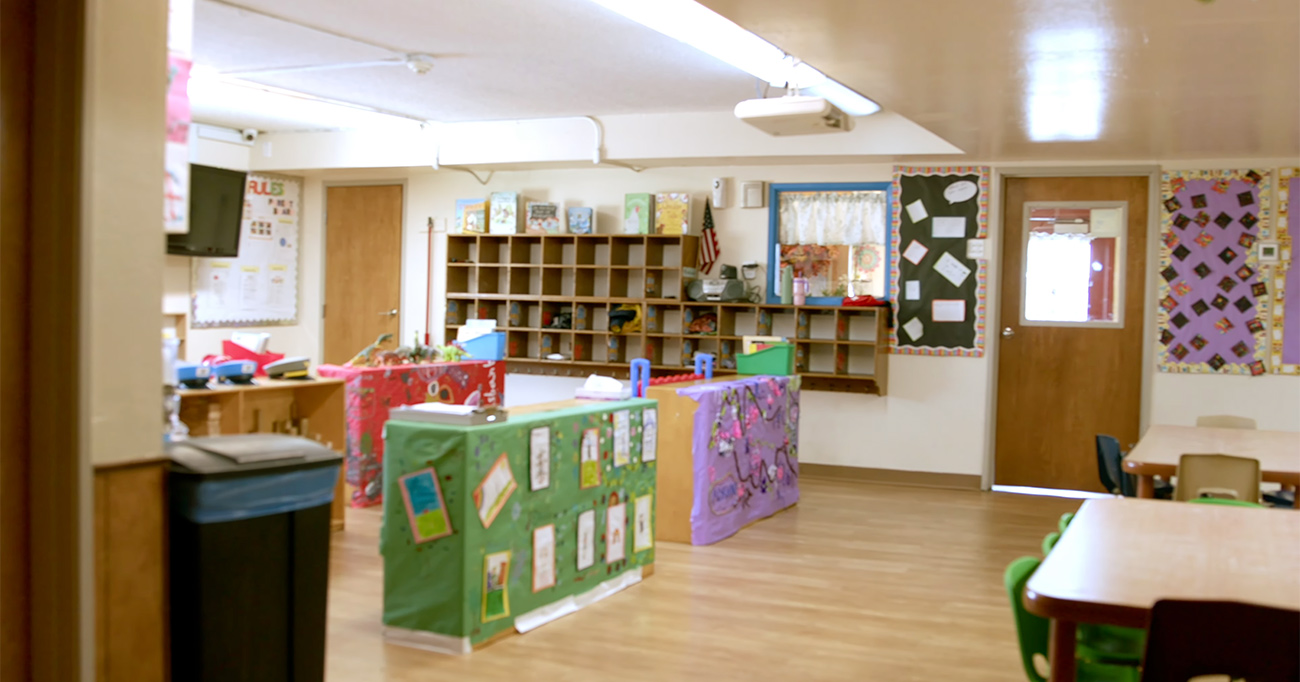
Pima County has embarked on an ambitious generational effort to decrease poverty among its 1 million residents and increasing access to early childhood education is included in the effort.
“This is an opportunity to be architects of change for the next generation,” said Bonnie Bazata, the Ending Poverty Now program manager for Pima County. She recently presented the initiative to a mix of First Things First regional partnership council members from the four FTF regions in Pima County.
Pima County leads the intergovernmental effort, with a strong partnership with the city of Tucson. The goal is for all the governments in Pima County, including Marana, Oro Valley, the Pascua Yaqui Tribe, Sahuarita, South Tucson, Tohono O’odham Nation and the Tucson Indian Center to align efforts.
The Prosperity Initiative will focus on 13 policy areas that research shows have the greatest opportunity to break the cycle of poverty. These policy areas contribute to growing the wealth and prosperity of the overall region through education, critical family resources and asset building and infrastructure priorities.
“What we found is if you’re going to make generational change, the children really matter,” Bazata said. “Poverty hits kids so hard. We need to focus on children and families.”
Breaking the poverty cycle
According to research on intergenerational poverty done by the National Academies of Sciences, Engineering, and Medicine, it is harder to get out of poverty if your parents and grandparents grew up in poverty.
“It’s usually at least twice as difficult as an adult to break that cycle,” Bazata said.
That’s why the logical step was to make access to quality early childhood education one of the focus areas, Bazata said.
The county already has a start through its Pima Early Education Program scholarships (PEEPs), which provide funding for local school districts and preschool providers to offer scholarships to qualifying preschoolers.
Research has proven the benefits of high-quality preschool programs for young children. These include entering kindergarten more prepared with less chance of being placed in special education and a lower risk of grade retention. Longer-term benefits include higher graduation rates, higher median income, less dependence on government services and more.
For the 2023-2024 school year, PEEPS is serving more than 1,600 children who are ages 3 to 5. Pima County pays for the bulk of the program, but participating school districts, cities and towns contribute to funding, making it a community-wide, collaborative effort.
Spirit of collaboration
It’s that spirit of collaboration that is strong within Pima County, said Jessica Harrington, who serves as the FTF senior director of the Southeast Regional Area, which includes all of Pima County.
What Pima County, along with cities, towns and tribal communities are doing is systems building at its core, Harrington said.
“The bold actions of our Pima County Board of Supervisors, mayors and councils and city managers makes it feel like the stars are aligned to make a difference in all these different areas for children and families.”
It’s a momentum-building opportunity for the four FTF regional councils within Pima County.
“Our regional council members are really looking at generations, this is not just about serving one parent and child,” Harrington said. “They’re embracing the idea that a family looks different. We respect and honor the diversity of families, which aligns with our data. We see multi-generations living together and we can acknowledge that in the work we do to support the family unit.”
For example, she pointed to FTF funding for home visitation and family resource centers, along with early literacy programs.
“We know there are different generations that are impacting the young child,” Harrington said. “There’s a shift in thinking about how we continue to build on those systems, with an ultimate goal to work in partnership with governments that hold the infrastructure and see how we can support their work.”
Building awareness
The regional councils all have the Prosperity Initiative as an agenda item to discuss at upcoming regional council meetings, Harrington said. She expects more conversations about the initiative and discussion about ways to help build awareness of the investment the regional councils are already making to help children and families in their communities.
“We have a lot of work going on in the landscape of family support of coordinated services,” Harrington said. “We have to look at investments and those cross-walking opportunities to put the pieces together for our governments to understand the impact of the family support programming. Not just the fiscal contributions, but the reasons why regional councils prioritized this type of work.”
The sooner that organizations and local governments understand what is already being funded in early childhood, decisions can be made about how to move the work forward.
“To see how Pima County is embedding early learning into its policies, it’s really shaping and shifting a whole new culture to continue the legacy of prioritizing the early years,” Harrington said.




